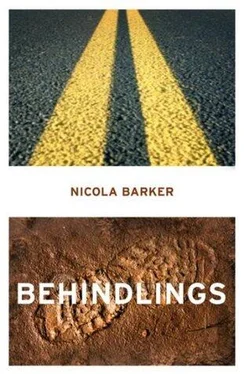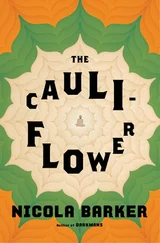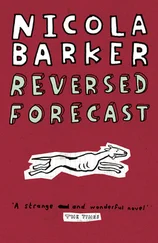What was the name of the silly boy who drowned in Anglesey? Warren, was it? Warren Summer? Warren Sum-n-er. Yes. Warren Sumner… That was him. Yes. Good.
No
Colin.
It was Colin Sumner.
It was Colin.
Arthur still retained most of his short-term memory.
Okay, not all of it, by any means, but at least some things remained intact. No matter what the… No matter. Some important … it was still working, still ticking over, still turning, despite everything.
Canvey. The bridge. The swing bridge.
Hmnnn. Air suddenly feels cooler. Brisker. Moister
Local people — as he remembered — had been almost unnaturally fond of this fine but patently rather antiquated construction.
The swing bridge.
He couldn’t properly recall what they’d called the damn thing… It did have a name… Now that was a challenge. He knew — or at least he felt, instinctively — that it’d had a person’s appellation. A man’s name. Something like Peter. The Peter Bridge. No. No, Colin. The Colin Bridge. What?
You’re thinking about the dead kid. You’re confusing…
How about Cannon?
Cannon — heavy armament — brand of camera — TV detective — bridge?
No. Arthur paused for a moment, placed his two hands onto his skinny hips and racked his brains… Cannon… Calvin… Colvin… The Colvin bridge. Of course. Of course.
And it was quite like Colin…
The Colvin Bridge; demolished the very same year he visited (it was flooding back, suddenly. Memory worked that way; damming up, the pressure building, building… then something giving; the wall — the buffer — the block — the nothing… then information — the news — the facts — the evidence — the data… a mass of it — an agony — gushing right past him in relentless torrents. Useless stuff, mostly. Rubbish — guff — padding).
In February. 1973. That was when it finally fell. So it must’ve been approximately this time of year when he’d visited, originally, because the bridge was still there, but no longer swinging. No longer working. January… Weird.
Arthur shook himself out of his reverie and walked onwards. He glanced around him. The fields were crammed with geese and peewits…
He re-analysed his route, carefully recollecting each and every single individual part of it: The road. The A road. Shouldered by potato fields. The water tower. The Pizza-Hut. The Texaco. The KFC…
Chickens. Yes. He’d seen some. And buntings. Bungalows. Big sheds. Old pubs a-plenty but with brand new faces. All tucked and lifted. Freshly painted.
And the pylons — hundreds of them — stretching out their metal fingers, deftly knitting the obliging winter white into a brazenly scratchy patchwork of wire and whizz and buzz. Marching towards the coast. A relentless army. In thundering formation.
Then –
Ah yes…
— the gradual flattening. The browning out, the bleaching. The stubby trees hunched up like pinched and twisted spinsters against the relentless slow-rolling lashes of sea breeze. The bushes, up on their toes, flaring, hissing, like angry yellow cats: lichen-ridden, feral, stray, bony, stricken. The landscape, sour and dry-grassed and mean and sulky. Low. Yanked back from the sea. Nearly dry, still resentful. Still sucking.
More roads. More mud. Tarmac. Roundabouts. More tarmac… ? — ha! Golf. There had to be, didn’t there? (Nothing grand. Just putting.)
The cuts, the banks, the creeks…
Then finally, the refineries. Balanced on the coastline like a clutch of steel reptiles. Like iguanas, nodding complacently — perhaps in friendship, possibly in challenge — towards the hoary, pewter, slate-smashed sea. Dry-clawed, shining, harsh, bulbous, slithering, contained, pristine.
Heavenly cities. Silver-streaked. Honed, funnelled, tanked-up, stripped-back, chiming and whistling (what was this? Home time? Lunch time? Some terrible emergency?). Like Dorothy’s Oz — once, twice, three times over — cursed and wizarded by crazy, metallic, sky-high titfers, neat smoke billowing in strictly circumscribed plumes (a celebratory cigar, smoked gingerly at a birth or a wedding), the odd, random bellow of industrial cantanker.
Arthur paused a while and looked about him. He was here, now, wasn’t he? He had arrived. This was Canvey. No. This was Benfleet. He was in neither one place nor the other. He was on the outer perimeters of both. One foot in either.
He pulled a map from his pocket. A piece of paper had been attached to it by a small silver clip (with another, rougher, less detailed map on top penned in thick black felt-tip). He glanced over towards the half-floating, mud-ridden clutter of the main marina. Low tide. Or low-ish –
Hmmn
Benfleet station, just behind him –
Check
The new bridge. Brick built in ‘73 –
Check
No name. Or none to be seen (did they never bother naming bridges any more, once the hopeful sixties were over?).
He set off again, crossed this unexceptional edifice — swamped in day-glo banners, for some reason; high tides? Tall ships? — took a sharp right beyond the main body of the marina, then abandoned the big road and trip-trapped back across a lesser tributary (if you wanted to string your fingers around the slim waist of the torrent, then this brief, thin segment was plainly the place to do it) over a perilous-seeming, tiny, hand-built wooden walkway, through an empty field full of broken bottles — aluminium cans, rotting paper, empty plastic canisters — and up onto the seriously-raised, neatly-grassed bank of Benfleet Creek… Curling like an adder. Man-made. Well-maintained. Quite deliciously — quite deliciously — prescriptive.
Arthur followed the creek, striding good-naturedly along its slithery ribbon. He side-winded. There were herons here, and things — if possible — were even plainer. Quieter. Sssssshhhh!
Scrub-land. Mudland. Sodden pasture. Everything just as it should be, by his reckoning –
Right.
He inspected his map again. He glanced up. Meadow pipits. And slime. Plenty of it. The tide still out, but dribbles of brown liquid trickling in like strong ground coffee through a cheesecloth filter. The earth still soggy. His boots — he grimaced — growing increasingly muddy. He walked on, heavily.
Sometimes there were horses; shaggy-maned, winter-coated, tethered by old rope to broken fences (holding nothing out, holding nothing in), exhaling fierce jets of steam at his silent passing. Head-tossing. Foot-stamping. Whinnying. Lip-smacking. Wanting attention. Wanting words, signs, whispers, kisses, anything. Just a sign. Or release, maybe. But Arthur walked on, determinedly, tightly bound as an Egyptian mummy.
Things grew wilder. He slipped and tripped through a sudden abundance of teazel and bramble, but kept his garments pristine all the while, never snagging. He ducked under the flyover…
Ah yes. The flyover. This was definitely…
Uh…
An innovation
Wasn’t it? Wasn’t it?
He passed beneath it, bent double, his back-pack troubling him. The soil underfoot, he noted, still recoiling from the shock of the thunderous cacophony above. Sheep-stepped, hoof-pocked, shit-splattered. Groaning.
Out the other side. He straightened –
Ouch!
He creaked a little. Over a small stile. Onwards. And on, and on, river-winding, cold-cutting, cheeks smarting, until finally, finally, he paused again. He peered about him. He stamped his feet.
Читать дальше
Конец ознакомительного отрывка
Купить книгу












